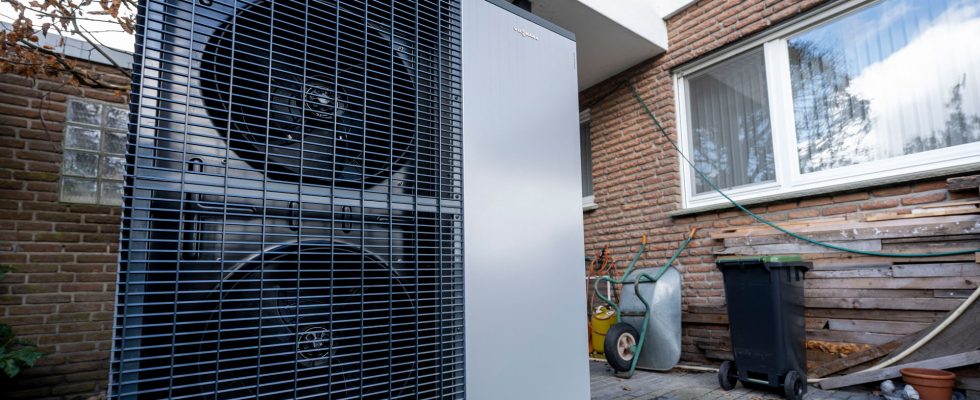As of: 04/19/2023 5:55 p.m
Consumers should not be left alone with the costs of climate-friendly heating. The federal government promises support to recipients of social benefits – and at the same time wants to promote wealthy homeowners.
In the future, the state will give you up to 50 percent if you install climate-friendly heating in your house. Exactly who is entitled to how much funding is difficult to say in general terms. Few things depend as much on the individual case as the question of who lives, how, heats and is eligible.
In principle, there should be a 30 percent subsidy for everyone who exchanges an old fossil heating system for a climate-friendly new heating system, such as a heat pump, in their owner-occupied home. In the case of gas heaters, which can also be operated with hydrogen in the future, only the additional costs that are necessary to make the heater suitable for hydrogen are covered.
Government plans “climate bonus I, II and III”
In addition, Economics Minister Robert Habeck and Building Minister Klara Geywitz are planning three “climate bonuses”; Consumers should be able to benefit from at most one of them. The “climate bonuses” have a social component and are intended to increase the incentive for owners of very old heaters to replace them.
The “climate bonus I” of 20 percent (in addition to the 30 percent that should exist anyway) should benefit those who don’t actually have to replace their heating yet, but do it anyway. This applies to recipients of income-related social benefits (which are actually exempt from the replacement obligation) or to owners of coal, oil or gas heating systems that are more than 30 years old but still do not need to be replaced.
Christoph Mestmacher, ARD Berlin, with information on the passed draft law on heating replacement
tagesschau24 6 p.m., April 19, 2023
Bonus for earlier exchange
The “climate bonus II” amounts to ten percent and is aimed at consumers who have to replace their heating but do so five years earlier than necessary. Even if they use at least 70 percent renewable energy with the new heating system, they should still be able to benefit from the “Climate Bonus II”.
Ministers Habeck and Geywitz apparently expect a larger number of possible users of the “climate bonuses I and II”. In order not to overload craft businesses and heating engineers, the application should be staggered over time. Initially – from 2024 – the replacement of at least 40 year old heaters is eligible, from 2025 the replacement of at least 35 year old devices and from 2026 of all heaters over 30 years old.
“Low-interest” loans in addition to subsidies
The “climate bonus III” applies to heaters that are less than 30 years old, break down and can no longer be repaired. However, consumers who want to take advantage of this bonus have to reach the statutory share of renewable energies of 65 percent after just one year (instead of three) with the new heating system.
For many homeowners, changing the heating system is likely to be a financial feat despite this subsidy. Habeck and Geywitz therefore also promise “low-interest loans with repayment grants”, regardless of income or need. The same applies to the “climate bonuses”: the government’s support concept makes no mention of asset or income checks.
The government “could not come to an understanding” about wanting to carry out asset or income tests when it comes to funding.
Image: picture alliance / Zoonar
Funding without asset or income checks
Habeck originally had other plans: in March he signaled that he had little desire to help multi-millionaires with a few villas when replacing the heating system. Today the Greens politician said the funding was open at the top; the government “could not agree to carry out an income test.”
One can assume that finance minister Lindner in particular did not want that. After all, such an examination would probably involve some bureaucratic effort for the authorities. Lindner approved Habeck and Geywitz’s heating law in the cabinet today, but put an additional statement on the record: on the one hand, he is concerned about the practicability of the law and about possible overloading of citizens and, on the other hand, about the consequences for his household.
Government does not know the total cost of the subsidy
In fact, it is still unclear how much the basic subsidy and the “climate bonuses” will actually cost the state. The money is to be paid from the climate and transformation fund and thus bypasses the federal budget, but Habeck, Geywitz and others did not name a sum today.
Just this much: The sum is “manageable,” said Habeck, although SPD leader Lars Klingbeil had previously stated that “massive money would be spent to promote the switch to heating.”

